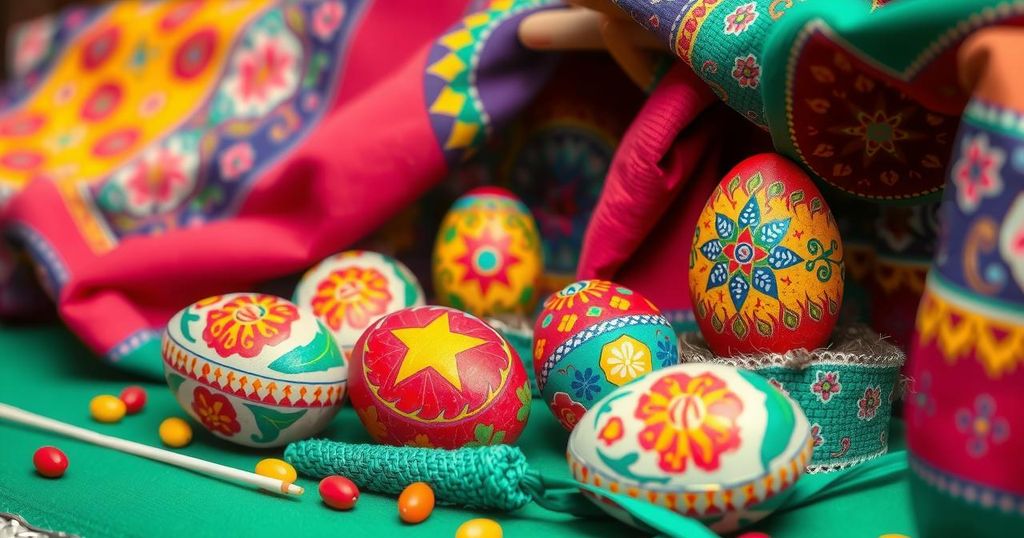The Significance of Easter Celebrations in Ethiopia

Easter in Ethiopia, celebrated as Fasika, marks the end of Lent with church services and festive meals. The occasion is notable for its vibrant traditions, including unique rituals, communal gatherings, and the enjoyment of traditional dishes, enhancing cultural and spiritual ties within the community.
Easter in Ethiopia is a significant occasion that is celebrated with vibrant traditions and religious observances. Known as Fasika, this feast marks the end of the Lent season. Ethiopians often participate in church services, followed by festive meals featuring traditional dishes. It is a time for family gatherings, reflecting both cultural and spiritual significance.
The Easter celebrations involve unique rituals, including attending midnight mass, where congregants don traditional garments. After the service, people enjoy elaborate feasts, which prominently feature dishes such as doro wat (spicy chicken stew) and injera (a sourdough flatbread). This rich culinary heritage enhances the communal spirit of the feast.
In addition to religious ceremonies, Easter in Ethiopia is an opportunity for communities to come together, fostering unity and a sense of belonging. The festivities often extend to the streets with joyful singing and dancing, embodying the essence of the celebration. Such events showcase the vibrant Ethiopian culture and the importance of community ties during this sacred time.
In summary, Easter, or Fasika, is a deeply rooted tradition in Ethiopian culture characterized by religious observances and communal feasts. The celebrations reflect not only the spiritual significance of the occasion but also the cultural values of family and community. With its unique rituals and culinary delights, the holiday remains a cherished time for Ethiopian people.
Original Source: www.bdtonline.com






